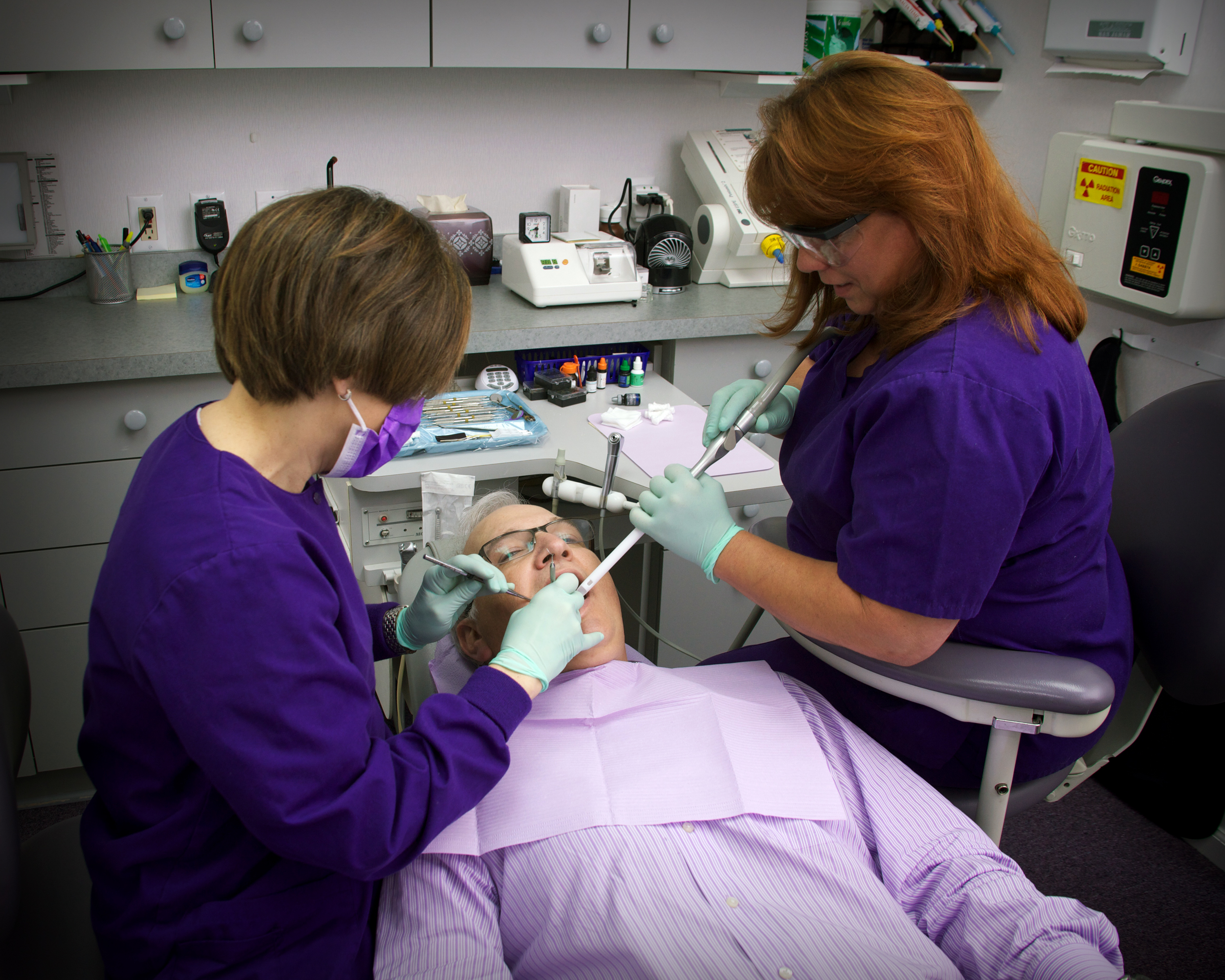 One of the significant reasons to have regular visits to the dentist is for the oral cancer screening that occurs during your visit. Oral cancer is a cancer of the mouth that affects either the lining of the mouth or corrodes the deeper tissues like bones, muscles and nerves in the mouth. It can affect the tongue, mouth, jaw and salivary glands.
One of the significant reasons to have regular visits to the dentist is for the oral cancer screening that occurs during your visit. Oral cancer is a cancer of the mouth that affects either the lining of the mouth or corrodes the deeper tissues like bones, muscles and nerves in the mouth. It can affect the tongue, mouth, jaw and salivary glands.
Your dentist is looking for these symptoms of oral cancer:
- Small growths or sores around the lining of the mouth of lips.
- White or red patches on the mouth, tongue or tonsils
- Loose teeth or dental appliances
- Gum disease, including swollen and bleeding gums.
- Any changes in the tongue
- Any changes in the movement of the jaw
Your dentist will visually examine the entire oral cavity. She may touch various parts of your mouth in her search for abnormalities. In addition, she will review your dental x-rays, paying particular attention to any changes in the images of your teeth and jaws
In addition, you might be aware of other conditions that you need to share with your dentist, like:
- Changes in your throat or hoarseness
- Mouth sores that don’t heal after two weeks
- Difficulties chewing or swallowing
- Speech impairments
- Mouth issues that are interfering with sleep.
- Persistent dry mouth.
If your dentist finds abnormalities, she may recommend a biopsy, CT scan, MRI or PET scan.
Oral cancer can be treated effectively, but treatment is much more successful when the cancer is diagnosed as early as possible.
Oral cancer cannot be completely prevented, but there is a high correlation between oral cancer and use of tobacco products and heavy use of alcohol. Cigarettes, pipes and cigars all carry a risk of oral cancer, as does snuff (chewing smokeless tobacco). The highest oral cancer rates involve a combination of both tobacco use and heavy drinking. If you consume tobacco and/or alcohol, you need to be screened regularly for oral cancer.
The good news if you are thinking of quitting smoking is that research has shown that after 3 to 5 years of smoking abstinence, oral cancer risk declines by 50%.
It also appears that smoking electronic cigarettes (“vaping”) may also pose a risk. More research is needed in this area.
Finally, HPV (human papilloma virus) also contributes to mouth cancers.
Oral cancer is a serious disease, often preventable, whose early diagnosis could be life-saving and improve the quality of your treatment and the quality of your life.